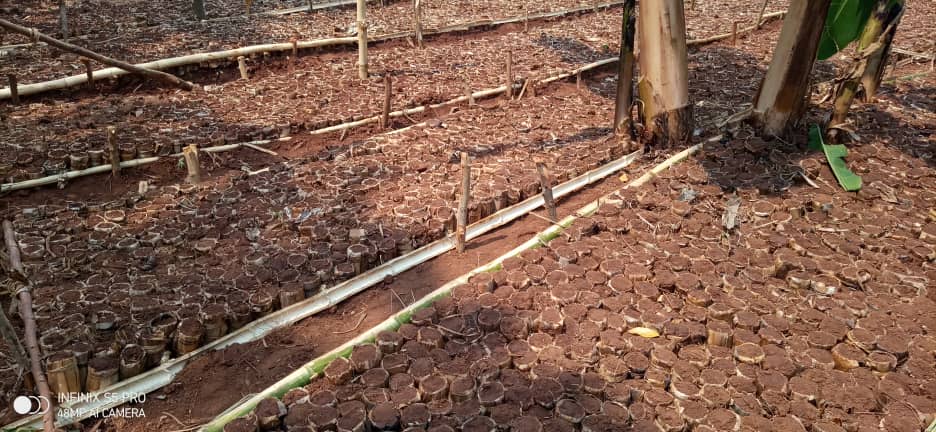Deforestation around Lake Tanganyika
When Jane Goodall flew over Lake Tanganyika in 1986, she noticed that the hills surrounding the lake in Burundi, Tanzania and the Democratic Republic of Congo had been deforested. Also around the tiny Gombe nature reserve (35 km2) in Tanzania, where she studied chimpanzees in the 1960’s, the ancient forests had disappeared.
In the region, there were constant conflicts which led to the dispersal of the population. Villages of people had settled in areas that were previously forested. This led to decades of large-scale deforestation and poaching of many species. What remains of the primary forest is divided into small islands where some species struggle to survive.
Flora and fauna in and around Lake Tanganyika have declined sharply. The biodiversity of Lake Tanganyika has been lost due to sand and mud run off from the deforested, surrounding hills into the lake, due to fishing and the accelerated warming of the water. Tanganyika is now considered the most endangered lake in the world.
In Burundi, where chimpanzees were once abundant, they are now only found in the Kibira, Rumonge and Vyanda nature reserves. It is estimated that there are now only a few hundred chimpanzees left in the country.
Reforestation
 Roots & Shoots Burundi was founded in 2006. Since its foundation, the organisation has already planted 6 million trees (2022), mainly in Makamba province in southern Burundi. Eleven nurseries supply the seedlings needed for reforestation. Five of them have been established with the financial support of JGI Belgium. Many people participate in the tree-planting campaigns: young people, members of the local authorities, the army, the church and ordinary citizens. Thanks to them, the hills have been reforested and the population is more aware of environmental problems. But that is not all: Roots &Shoots Burundi also supports the local population by giving them access to education and by providing extra income in exchange for their help. According to David Ninteretse, project coordinator, the creation of teams trained to monitor poachers has already significantly reduced illegal hunting of chimpanzees in the region.
Roots & Shoots Burundi was founded in 2006. Since its foundation, the organisation has already planted 6 million trees (2022), mainly in Makamba province in southern Burundi. Eleven nurseries supply the seedlings needed for reforestation. Five of them have been established with the financial support of JGI Belgium. Many people participate in the tree-planting campaigns: young people, members of the local authorities, the army, the church and ordinary citizens. Thanks to them, the hills have been reforested and the population is more aware of environmental problems. But that is not all: Roots &Shoots Burundi also supports the local population by giving them access to education and by providing extra income in exchange for their help. According to David Ninteretse, project coordinator, the creation of teams trained to monitor poachers has already significantly reduced illegal hunting of chimpanzees in the region.
Today, the following results of the cooperation of JGI Belgium with Roots & Shoots Burundi are visible:
• About 40% of trees are planted in the forest to protect animals.
• Many trees are planted to provide shade and hygiene in schools, other common areas and family homes.
• Erosion and landslides during rainy season are prevented thanks to tree planting.
• Trees are planted to provide fruit for families.
• Planted trees provide wood for use and avoid further deforestation.
• Creation of several nurseries to ensure continuation of future tree planting.
• Creation of aquaculture ponds to provide food security and avoid hunting.
• Empowerment of spokespeople for groups of former soldiers.
• Education of peaceful conflict resolution for youth.
• Concrete support for environmental education programmes in schools.
How to help?
Learn more about JGI Belgium’s Forest in One Day and Roots & Shoots .

